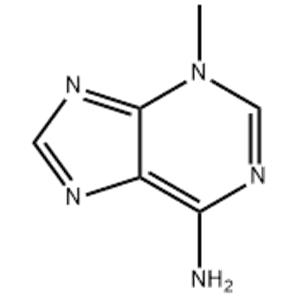
3-METHYLADENINE NEW
| Price | $10 | $6 | $2 |
| Package | 1KG | 100KG | 1000KG |
| Min. Order: | 1KG |
| Supply Ability: | g-kg-tons, free sample is available |
| Update Time: | 2024-04-28 |
Product Details
| Product Name: 3-METHYLADENINE | CAS No.: 5142-23-4 |
| Min. Order: 1KG | Purity: 99% |
| Supply Ability: g-kg-tons, free sample is available | Release date: 2024/04/28 |
| Lead time: In stock | Packaging: bottle/drum/bucket/IBC, as request. |
| Delivery: By sea, by air, by express | Origin: Manufacturer |
1. Product information
| Name | 3-methyladenine |
|---|---|
| Synonym | More Synonyms |
| Description | 3-Methyladenine is a PI3K inhibitor. 3-Methyladenine is a widely used inhibitor of autophagy via its inhibitory effect on class III PI3K. |
|---|---|
| Related Catalog | Signaling Pathways >> Autophagy >> Autophagy Signaling Pathways >> Autophagy >> Mitophagy Signaling Pathways >> PI3K/Akt/mTOR >> PI3K Research Areas >> Cancer Natural Products >> Alkaloid |
| Target | PtdIns3Kγ:60 μM (IC50, Cell Assay) Vps34:25 μM (IC50, Cell Assay) Human Endogenous Metabolite Autophagy Mitophagy |
| In Vitro | 3-Methyladenine shows slight preference to binds to Vps34 in vitro, with an IC50 of 25 µM for Vps34 as compared with 60 µM for PtdIns3Kγ, and 3-Methyladenine (10 mM) can inhibit all PtdIns3Ks[1]. 3-Methyladenine (3-MA, 5 mM) suppresses autophagy in HeLa cells under both glucose-free conditions and normal conditions. 3-Methyladenine (2.5, 5 or 10 mM) induces caspase-dependent cell death in HeLa cells, and the death occurs independently of the inhibition of autophagy. Moreover, 3-Methyladenine (3-MA, 1 mM) significantly shortens the duration of nocodazole-induced-prometaphase arrest[2]. |
| In Vivo | 3-Methyladenine (1.5 mg/100 g, i.p.) treatment alleviates sodium taurocholate-induced severe acute pancreatitis (SAP) in rats at both 12 and 24 h. 3-Methyladenine inhibits autophagy of pancreatic acinar cells in sodium taurocholate-tnduced SAP. 3-Methyladenine also shows inhibitory effects on PI3K/Akt signaling pathway and NF-κB signaling pathway in sodium taurocholate-tnduced SAP[3]. |
| Cell Assay | Cell viability is determined by a trypan blue exclusion assay. Cells are cultured in the medium with 3-Methyladenine. Both adherent and floating cells are collected and suspended in phosphate buffered saline (PBS, pH 7.4) at a final density of 1-2×106/mL. An equal volume of 0.4% trypan blue solution (w/v, in PBS) is added to the cell suspension and mixed thoroughly. After incubation at room temperature for 3 min, cell counting is performed using a hemacytometer. |
| Animal Admin | All rats are fasted for 12 h with free access to water prior to operation. After anesthesia by intraperitoneal (i.p.) injection of 2% sodium pentobarbital (0.25 mL/100 g), they are laid and fixed on the table, routinely shaven, disinfected, and draped. The rat SAP model is induced by 0.1 mL/min speed uniformly retrograde infusion of a freshly prepared 3.5% sodium taurocholate solution (0.1 mL/100 g) into the biliopancreatic duct after laparotomy. Equivalent volume of normal saline solution is substituted for 3.5% sodium taurocholate solution in the sham-operation (SO) control group. The incision is closed with a continuous 3-0-silk suture, and 2 mL/100 g of saline is injected into the back subcutaneously to compensate for the fluid loss. 180 rats are randomly divided into four groups: (1) Acanthopanax treatment group (Aca group, n = 45) where the rats are injected with 0.2% Acanthopanax injection at a dose of 3.5 mg/100 g 3 h after successful modeling via the vena caudalis once, knowing that this dosage is effective; (2) 3-Methyladenine treatment group (3-methyladenine group, n = 45) where the rats are injected with 100 nmol/μL 3-methyladenine solution at a dose of 1.5 mg/100 g 3 h after successful modeling via the intraperitoneal route once, knowing that this dosage is effective; (3) SAP model group (SAP group, n = 45) where these rats receive an equivalent volume of the normal saline instead of Acanthopanax injection 3 h after successful modeling via the vena caudalis once; (4) SO group (control, n = 45) where these rats receive an equivalent volume of the normal saline instead of Acanthopanax injection 3 h after successful sham-operation via the vena caudalis once. The 45 animals in each of the four groups are equally randomized into 3, 12, and 24 h subgroups for postoperative observations[3]. |
| References | [1]. Miller S, et al. Finding a fitting shoe for Cinderella: searching for an autophagy inhibitor. Autophagy. 2010 Aug;6(6):805-807. [2]. Hou H, et al. Inhibitors of phosphatidylinositol 3'-kinases promote mitotic cell death in HeLa cells. PLoS One. 2012;7(4):e35665. [3]. Wang X, et al. Acanthopanax versus 3-Methyladenine Ameliorates Sodium Taurocholate-Induced Severe Acute Pancreatitis by Inhibiting the Autophagic Pathway in Rats. Mediators Inflamm. 2016;2016:8369704. [4]. Meng Li, et al. Alda-1 Ameliorates Liver Ischemia-Reperfusion Injury by Activating Aldehyde Dehydrogenase 2 and Enhancing Autophagy in Mice. J Immunol Res. 7 August 2018. |
| Density | 1.6±0.1 g/cm3 |
|---|---|
| Boiling Point | 240.1±50.0 °C at 760 mmHg |
| Melting Point | -300ºC (dec.)(lit.) |
| Molecular Formula | C6H7N5 |
| Molecular Weight | 149.153 |
| Flash Point | 99.0±30.1 °C |
| Exact Mass | 149.070145 |
| PSA | 69.62000 |
| LogP | -2.36 |
| Appearance of Characters | Powder | White |
| Vapour Pressure | 0.0±0.5 mmHg at 25°C |
| Index of Refraction | 1.807 |
| Storage condition | Store at +4°C |
2. Packaging
For powders: normal is 25kgs/Drum or bag, or larger/smaller package as request.
For liquids: normal 25kgs/drum, 180-300kgs/bucket, or IBC, determined by the nature of the product.
Or smaller package 1kg/bottle, 10kgs/bottle as request.
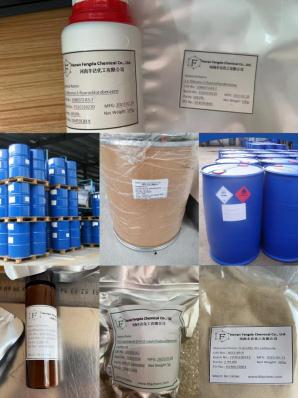
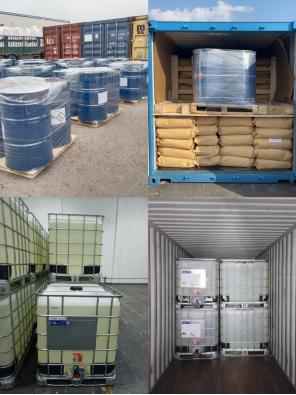
3. Shipping

4. Contact information
For more details, pls contact us freely.
Mob: 86 17630971917
WhatsApp/Skype/Wechat/LINE: 86 17630971917
Company Profile Introduction
You may like
Recommended supplier
| Product name | Price | Suppliers | Update time | |
|---|---|---|---|---|
| $10.00/1KG |
VIP7Y
|
Hebei Chuanghai Biotechnology Co., Ltd
|
2024-12-03 | |
| $48.00/50mg |
VIP5Y
|
TargetMol Chemicals Inc.
|
2024-11-19 | |
| $95.00/1kg |
VIP2Y
|
Zibo Hangyu Biotechnology Development Co., Ltd
|
2023-11-14 | |
| $0.00/25KG |
VIP5Y
|
Hebei Mujin Biotechnology Co.,Ltd
|
2022-07-12 | |
| $2.00/1kg |
VIP7Y
|
Career Henan Chemical Co
|
2018-12-23 |



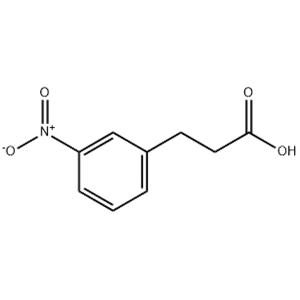
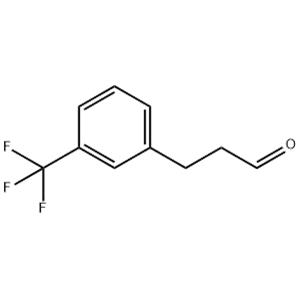


 China
China